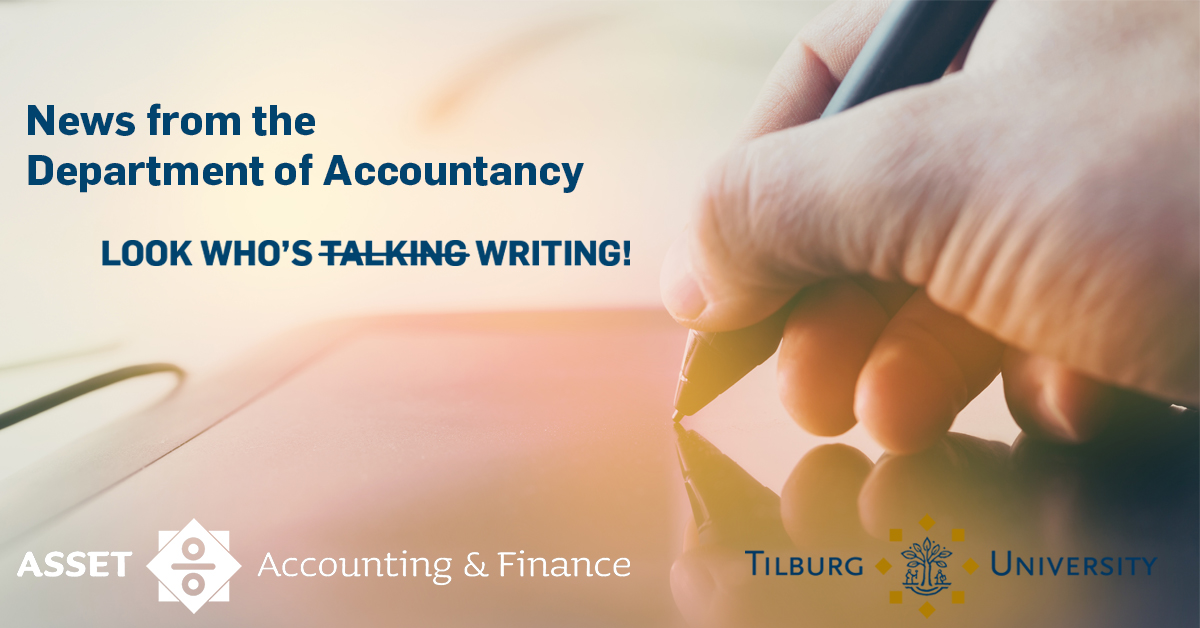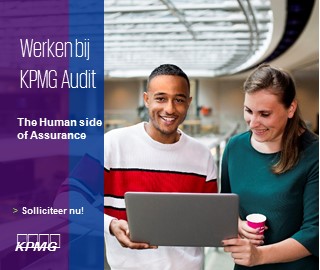LOOK WHO’S TALKING WRITING!
Placing a name under this article suggests it is written by a human. But is that really the case?
Many news articles are no longer written by journalists, but instead generated within a few seconds by a computer algorithm. The use of computer algorithms for writing articles is expected to continuously increase in the coming years.
Journalists are not the only source of information for investors. Companies disclose more information than ever before. Eddy Cardinaels, Stephan Hollander (both accounting professors at Tilburg University), and Brian White (University of Texas at Austin) have conducted award-winning research on the summaries that companies disclose when they release the annual results or quarterly earnings. A summary of a quarterly earnings release, for instance, can help investors by emphasizing the most important results. Managers might however use these summaries to give an overly positive impression of the company or cherry-pick some of the highlights. Until now, it was not known whether and to what extent this happened. The study provides evidence that managers both cherry-pick and give an overly positive impression. This raises the question if computer algorithms can lend a hand to investors by providing them with less biased summaries. The authors examine several algorithms. One algorithm—named LexRank; a method developed by Larry Page, one of the founders of Google—is ranked as the best algorithm. To investigate the difference in terms of bias in automatic and management summaries, the authors use sentiment analysis. In sentiment analysis, one examines and counts the number of positive and negative words. Analyses show that the summaries that are “written” by LexRank give a significantly more accurate picture compared to the summaries of the same companies written by management. In summaries written by management, negative information is systematically omitted whereas positive information is emphasized.
“This raises the question if computer algorithms can lend a hand to investors by providing them with less biased summaries.”
Cardinaels, Hollander, and White subsequently investigate how non-professional investors perceive the two different types of summaries. In one of the analyses, non-professional investors were asked to read the quarterly report of Boeing. After they read the entire document, they were asked to evaluate five summaries. One of the summaries was written by management. The other four were generated by a computer algorithm. The investors were not told who or what made which summary. The study provides evidence that automatically generated summaries were perceived as less biased. At the same time, the quality of the automatically generated summaries was perceived as equal to those written by management. Further analyses show that investors who are presented an automatic summary before making an investment decision value the company lower. This result is consistent with the positive bias in management summaries. Investors reading automatically generated summaries also have more confidence in the decisions taken.
The research will be published in Review of Accounting Studies, a leading journal in the field of accounting. It provides an important fundament for further research to the role of computer algorithms in the provision of information to the capital markets.
Finally, the question remains who wrote this article: the undersigned or a computer algorithm? I will no longer keep you in suspense, it was the undersigned!
Christian Peters
Research Master Student Accounting

















